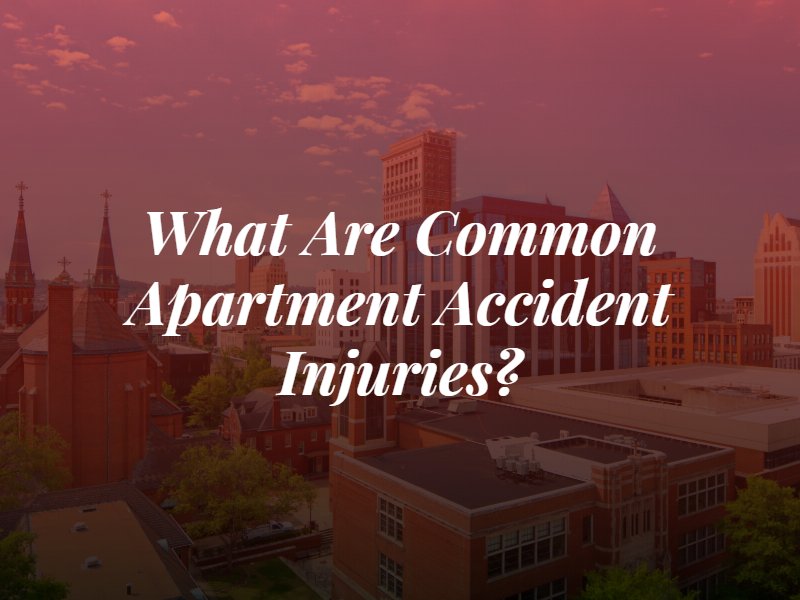What Are Common Apartment Accident Injuries in Boston?
Published in Personal Injury, Safety on June 15, 2020
Reading Time: 3 minutes
It is typical to feel safe and secure in your apartment building. As a renter, you have the legal right to expect reasonable care by your landlord, building owner or management company. Reasonable care means an expectation that your landlord will regularly inspect the premises for hazards, repair known issues and respond promptly to tenant complaints. When a property owner is negligent in the care or control of an apartment building, tenants can suffer serious injuries.

Slip and Fall Injuries
Slip, trip and fall accidents are some of the most common accidents at apartment buildings in Boston. Fall accidents can happen in shared or common areas, such as patios, lawns, stairwells, lobbies and laundry rooms. They can also occur inside individual units due to hazards such as burst pipes or uneven floorboards. Many common hazards could cause slip and fall accidents in an apartment building or on the premises in Boston.
- Water leak
- Ice and snow on the premises
- Dangerous parking lots
- Cracked pavement
- Unsafe staircases
- Wet floors
- Greasy or waxy floors
- Poor lighting
- Uneven floor surfaces
- Dangerous swimming pool decks
Your landlord or the owner of the property could be liable for your slip and fall accident if he or she reasonably should have repaired the hazard prior to your accident. If, for example, you noticed a water leak and notified your landlord, but he or she ignored your complaint for a month, the landlord could be liable for a subsequent fall injury due to the leak. A negligent or lax landlord could be legally responsible for your fall depending on the circumstances.
Dog Attacks
Animal attacks can happen in apartment buildings that allow pets. A tenant with a dangerous dog, for example, could be negligent in keeping the pet contained or under control, leading to a violent attack and bite injury. An apartment dog bite injury case could name either the pet owner or your landlord as the defendant, depending on the situation. The pet owner could be strictly liable for the damages his or her dog caused regardless of whether the dog had been aggressive before. Your landlord could share fault, however, if he or she should have done more to prevent the injury. If, for example, the landlord should have screened the tenant out due to a dog breed that is on the Do Not Rent list, the landlord could be partially liable for your injuries.
Elevator Accidents
Elevator accidents at apartment and condominium buildings can cause catastrophic injuries. Broken bones, crush injuries, traumatic amputations and fall injuries are common in elevator accidents. If the owner of the building was negligent in the proper installation, maintenance or upkeep of the elevator, he or she could be liable for your accident. It is the owner’s legal responsibility to inspect and maintain the elevator according to the manufacturer’s requirements. Broken building codes or negligent repairs could lead to a devastating elevator accident.
Electrical Problems
Electrical issues within an apartment building could lead to serious accidents such as fires, electrical shocks and electrocution. These incidents can cause painful burns, scarring and even wrongful death in some circumstances. Old buildings are especially prone to wiring problems. If your landlord reasonably should have known about the electrical issue but failed to do anything to remedy it, you could have grounds for a claim against him or her for your related injuries.
Who Is Liable for an Apartment Injury?
Fall accidents, swimming pool accidents, dog bites, criminal assaults, parking lot accidents and many other accidents while at your apartment building in Boston could lead to liability for your damages on your landlord or the owner of the property. Working with a personal injury lawyer after an apartment accident injury could help you understand who the defendant will be in your case. Your accident lawyer can handle matters such as seeking fair compensation and filing an insurance claim on your behalf while you focus on healing.
For more information, call our law office at (617)-391-9001. Or if you would prefer to email us, then please visit our contact page.
Comments are closed.










